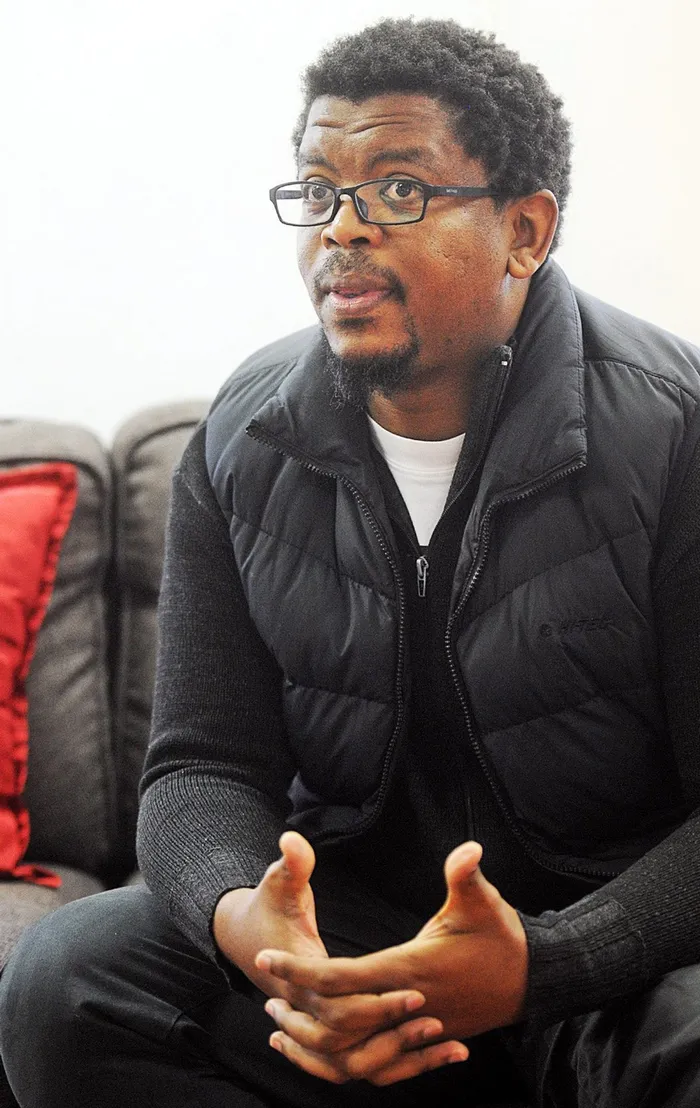The enduring legacy of Fort Calata: A son’s perspective on fatherhood and social justice

Lukhanyo Calata, one of the SABC 8 and son of one of the Cradock Four, Fort Calata. Picture: Independent Media Lukhanyo Calata, the son of one of the Cradock Four, Fort Calata.
Image: Independent Newspapers Archives
As Father’s Day approaches, Lukhanyo Calata, son of Fort Calata, one of the Cradock Four anti-apartheid activists murdered in 1985, spoke candidly about his father’s enduring legacy, the sacrifice that shaped South Africa’s freedom, and the ongoing challenges facing the country’s youth.
Lukhanyo was only three years old when his father was killed, leaving him too young to directly learn from Fort.
Without memories of his presence, his understanding of his father’s values and lessons come from stories shared by those who knew him, and passed down over the years.
One memory that stood out for Lukhanyo was the revelation that his father was not only an activist and a teacher, but a talented musician.
“My dad was a musician, quite a talented one, who played multiple instruments,” he said. “He played for several bands in Cradock, including his own, The Heartbreakers. It’s something I have always connected with - especially since I love music too.”
Lukhanyo, a bass player who also had his own band, said he feels closest to his father when he is playing his instrument.
“I feel particularly robbed of my father during certain music moments. I often wonder if he had not been taken away from us, whether I would have ended up in journalism at all.
“We could have ended up doing music,” he said.
In the fight for justice in the Cradock Four case, which is currently ongoing in court, he feels a deep sense of connection to Fort’s values.
“The inquest into my father’s death is one of those moments where I feel his presence,” he said. “Not in a weird or creepy way, but knowing what I know about him, and the words of encouragement from people who knew him - it all pushes us forward.”
The effort to preserve his father’s honour is not without burdens. Lukhanyo acknowledges that carrying the legacy of someone who died for the cause of a free and just South Africa is not always easy.
“There are certain things I cannot do, like behave in a way that dishonours my father’s name. I can’t be seen disrespecting that legacy.”
Lukhanyo believes that the fight his father died for - providing black children with the opportunity to thrive - is still not fully realised.
“It’s an ongoing struggle, and it remains even more relevant today. Youth unemployment is probably the biggest problem we face,” he said. “There are so many children sitting with tremendous untapped potential, but because we live in a country where the economy is not growing … those children cannot fulfil their God-given potential. Anything short of that does make it seem like my father and many others died in vain.”
He also reflected on how his father would have felt about the state of education.
“My father was a teacher, his mother was a teacher, his friend Matthew Goniwe was a teacher. Education was something I imagine he held very dear to his heart. If you look at the state of SA’s public education, he would be very disappointed with the level of education to which children in this country are exposed.”
Despite these challenges, he remains proud of the progress the country has made.
“There are aspects of the country that my father would be incredibly proud of. For instance, every five years we go to elections, those elections are free and fair, and we are able to choose our representatives in Parliament. We have a Constitution that guarantees all of us equal rights, and enshrines certain freedoms. We have a free media. The judicial system is autonomous and we have Chapter 9 institutions that work to protect our democratic rights.”
Now, as a father himself, Lukhanyo has his own reflections on fatherhood, placing great importance on showing love and affection to his son.
“I couldn't be prouder of my 12-year-old boy, Kwezi.
“I hug that boy a lot - that is my way of expressing love and acknowledging the people in my life. And obviously, as his dad, he doesn't necessarily have a choice in how many hugs he gets,” he said laughing.
Related Topics: